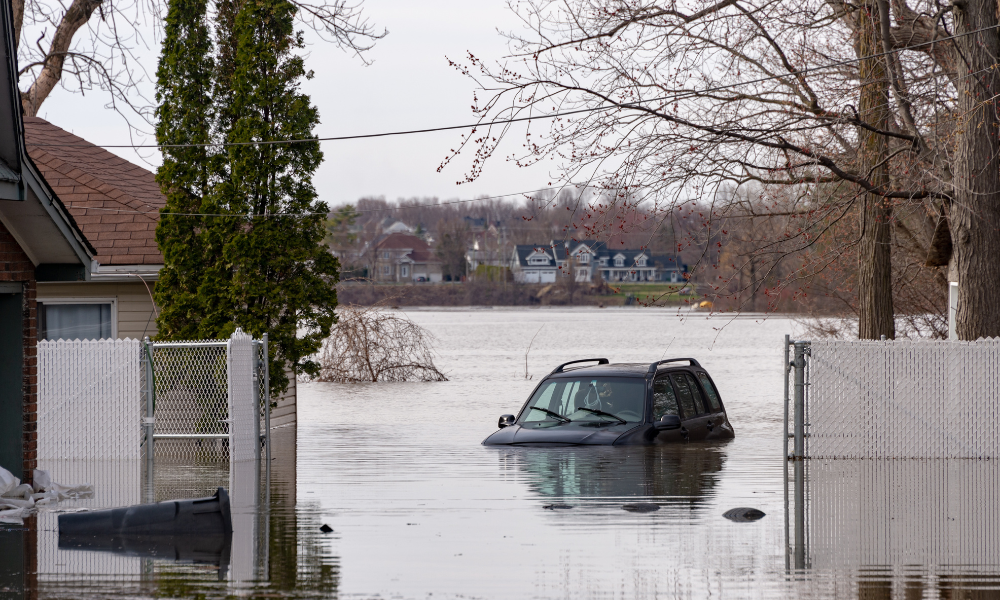Real estate experts say revised flood zone classifications will impact home sales and tax revenues

The Quebec Professional Association of Real Estate Brokers (QPAREB) has raised concerns about the potential impact of new flood zone designations on property values.
QPAREB submitted a brief during a public consultation on modernizing regulations for wetlands and flood zones, warning that the revised flood zone mapping, which identified an additional 55,000 properties as flood-prone, could lead to a significant drop in property values and create difficulties for homeowners looking to sell.
The updated map, which was released as part of the province’s modernization of its regulatory framework for wetlands and flood zones, now places 77,000 homes in areas considered at risk of flooding. This was 55,000 more than the previous mapping and affects properties with a combined estimated value of $18.4 billion.
According to QPAREB, the devaluation of these properties could have far-reaching consequences, not only for homeowners but also for municipalities that rely on property taxes. Lower property values mean lower tax revenues.
The association also pointed out that the perception of flood risk, even if actual flood occurrences are rare, can deter potential buyers. Homeowners in these areas might find it harder to sell their properties, as flood risk can weigh heavily on buyer decision-making.
In its brief, the QPAREB called for several measures to mitigate the impact of the new flood zone designations.
The association called on the Quebec government to introduce financial assistance for those affected by the new flood zone classifications.
It also urged financial institutions and insurance providers to be more transparent about their policies regarding properties located in flood-prone areas. This would help homeowners make informed decisions about financing and insurance options.
Another solution proposed is the introduction of a "resilience certification" for homes that have been retrofitted to better withstand flooding. This certification, suggested by Professor Michel Leclerc of the Institut national de la recherche scientifique, would help restore confidence in the market by signalling that these properties are better protected against potential flood risks.
Read next: Quebec’s hot housing market: Will it last?
Additionally, QPAREB has advocated for a comprehensive public awareness campaign to inform homeowners about the changes in flood zone regulations and what they mean for property values and saleability.
“We applaud the government for seeking to implement long-term solutions to counter the very real impacts of climate change,” Nathalie Bégin, president of the QPAREB’s brokerage practices committee, said in a statement. “However, it is crucial that mitigation and supportive measures be developed to support homeowners affected by the new mapping and to preserve property market stability. The government can continue to count on our complete co-operation in this regard.”
Make sure to get all the latest news to your inbox on Canada’s mortgage and housing markets by signing up for our free daily newsletter here.



